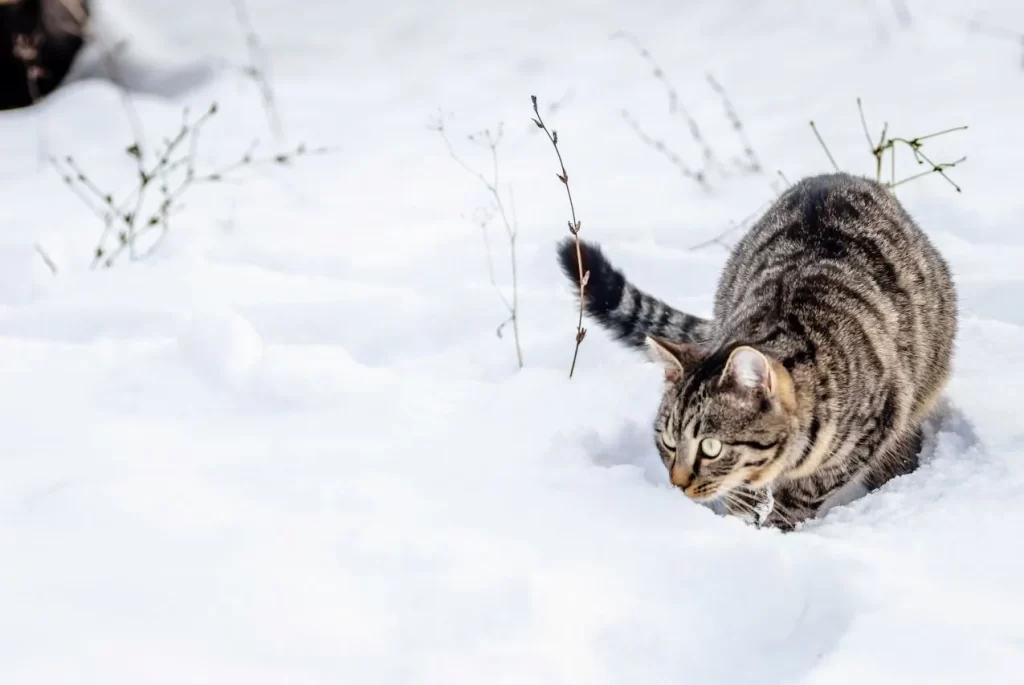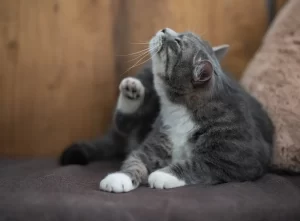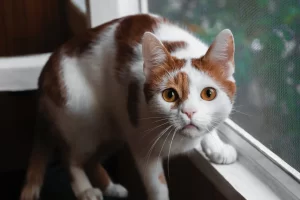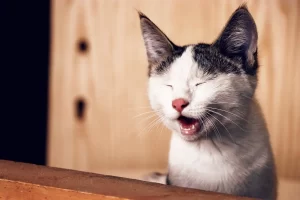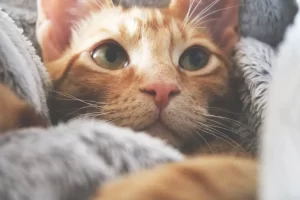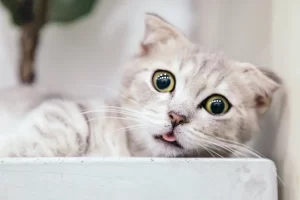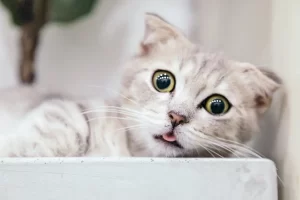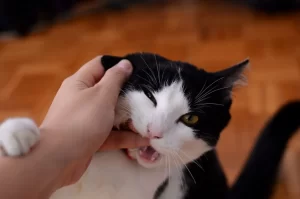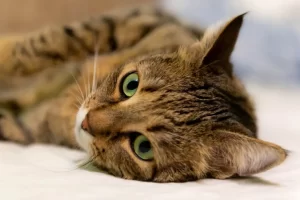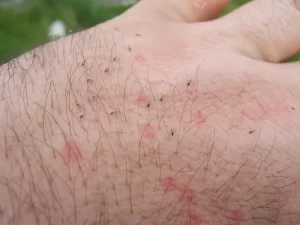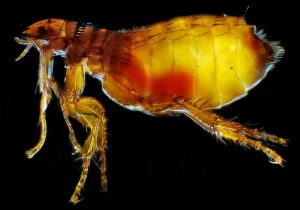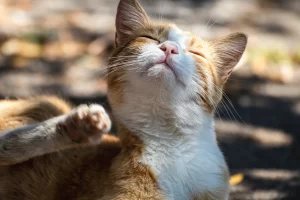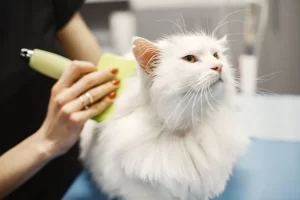Cats or kittens, just like humans, can also suffer from colds. Cat colds, also known as feline upper respiratory infections, are caused by a variety of viruses and bacteria and can affect cats of all ages and breeds. The symptoms of a cat cold can range from mild to severe, and if left untreated, can lead to more serious complications. In this article, we will discuss the causes, symptoms, and home remedies for cat colds, as well as the importance of consulting a veterinarian for proper diagnosis and treatment. We will also provide tips on how to prevent cat colds and how to support your feline friend during their recovery.
Table of Contents
ToggleCat or kitteh colds: Causes, signs, and symptoms
Cat colds, also known as feline upper respiratory infections, are a common ailment among cats. They are caused by a variety of viruses and bacteria, including feline herpes virus (FHV-1), feline calicivirus (FCV), and Chlamydophila felis. These viruses and bacteria can infect the nose, throat, and sinuses of cats, leading to a variety of symptoms.
Causes:
Feline upper respiratory infections are highly contagious and can be spread through direct contact with infected cats, as well as through contact with contaminated objects, such as food and water bowls, and through the air. Cats that are housed in crowded conditions, such as in shelters or multi-cat households, are at an increased risk of contracting a cat cold. Stress, poor nutrition, and a weak immune system can also increase the susceptibility of a cat to a feline upper respiratory infection.
Symptoms:
The symptoms of a cat cold can range from mild to severe, depending on the underlying cause and the cat’s overall health status. The common signs of a cat cold include sneezing, nasal congestion, discharge from the eyes and nose, coughing, and fever. Some cats may also experience loss of appetite, lethargy, and eye ulcers. In some cases, cats may develop secondary bacterial infections, leading to more severe symptoms such as difficulty breathing, pneumonia, and even death.
It is important to be aware that some symptoms may indicate a more serious condition that requires professional treatment, such as feline leukemia, feline AIDS, or other underlying health issues. Therefore, it is important to consult a veterinarian for proper diagnosis and treatment.
home remedies for cat colds
There are several home remedies that can be used to help alleviate the symptoms of a cat cold and support the cat’s recovery. These remedies can be broadly categorized into the following categories:
- Hydration: Ensuring that your cat is well-hydrated is important for their overall health and can also help to clear nasal congestion and reduce coughing. You can encourage your cat to drink more water by providing them with fresh, clean water in a shallow bowl, or by offering them wet food.
- Steam therapy: Steam can help to open up the nasal passages and relieve congestion. You can create a makeshift steam room by running a hot shower, and sitting in the bathroom with your cat for 10-15 minutes. You can also use a humidifier in the room where your cat is staying.
- Nasal irrigation: Saline nasal irrigation can help to flush out mucus and debris from the nasal passages. You can use a bulb syringe or a saline nasal spray to gently flush the nose.
- Nutritional support: A healthy diet can help to boost the immune system and support the cat’s recovery. Offer your cat a high-quality, nutrient-dense diet, and consider supplementing with vitamins and minerals, such as vitamin C and zinc, which have been shown to have immune-boosting properties.
- Herbal remedies: Some herbs, such as echinacea and licorice root, have been traditionally used to support the immune system and alleviate respiratory symptoms. You can offer your cat an herbal remedy in the form of a tincture or tea, but be sure to consult with a veterinarian before giving your cat any herbal remedies.
- Medications: If your cat is experiencing severe symptoms or is at risk of complications, your veterinarian may prescribe medications such as antibiotics or antiviral drugs to help speed up recovery and prevent secondary infections.
a) Hydration
Keeping a cat with a cold well-hydrated is crucial for their overall health, as nasal congestion can make it difficult for them to breathe and eat. Dehydration can also increase the risk of complications and slow down the recovery process.
To increase your cat’s water intake, you can try the following:
- Provide fresh, clean water in a shallow bowl. Cats can be picky drinkers, so try different bowls or locations to find what your cat prefers.
- Add wet food to their diet. Wet food is higher in moisture content than dry food, which can help to increase hydration.
- Use a water fountain. Some cats find the sound of running water more appealing than still water, and may be more likely to drink from a fountain.
- Make sure the water is at room temperature. Some cats may not like drinking cold water, so make sure the water is at room temperature or slightly warm.
- Add flavor to the water. You can try adding a small amount of low-sodium chicken or beef broth, or a few slices of cucumber or lemon to the water to make it more appealing.
It is also important to monitor your cat’s water intake, and if you notice that they are not drinking enough water, you should contact your veterinarian. They may recommend additional treatments such as subcutaneous fluid therapy to help keep your cat hydrated.
b) Steam therapy
Steam can be helpful in opening up the nasal passages and relieving congestion. There are several ways to provide steam therapy for your cat:
- Run a hot shower: Run a hot shower, and sit in the bathroom with your cat for 10-15 minutes. The steam from the shower will help to open up the nasal passages and relieve congestion.
- Use a humidifier: A humidifier can help to add moisture to the air, which can help to relieve congestion and make it easier for your cat to breathe. Place the humidifier in the room where your cat is staying, and make sure to keep the humidity level between 40-60%.
- Create a steam tent: You can create a makeshift steam tent by draping a towel over a chair, and sitting with your cat under the towel while a bowl of hot water is placed near the cat. This method can provide more concentrated steam and can be effective.
When providing steam therapy, it’s important to make sure that the steam is not too hot, as it may burn your cat’s skin. It’s also important to monitor your cat’s breathing, and if you notice any difficulty breathing, stop the steam therapy and contact your veterinarian.
c) Nutritional support and supplements
Omega-3 fatty acids: These are found in fish oil and flaxseed oil and can help to reduce inflammation and boost the immune system. They can be beneficial in managing symptoms of cat colds and can be given as a supplement or added to their food. It’s important to consult with your veterinarian regarding the dosage and usage instructions.
- L-lysine: An amino acid that can be beneficial in managing respiratory tract infections in cats. It can help to reduce inflammation, boost the immune system and shorten the duration of symptoms. It can be given as a supplement or added to their food. It’s important to consult with your veterinarian regarding the dosage and usage instructions.
- Vitamin C: A water-soluble vitamin that acts as an antioxidant and can boost the immune system. It may help to reduce the severity and duration of cold symptoms and can be given as a supplement or added to their food. It’s important to consult with your veterinarian regarding the dosage and usage instructions.
- Vitamin E: A fat-soluble vitamin that acts as an antioxidant, and can help to reduce inflammation and boost the immune system. It may help to reduce the severity and duration of cold symptoms and can be given as a supplement or added to their food. It’s important to consult with your veterinarian regarding the dosage and usage instructions.
It’s important to note that supplements should not be used as a substitute for veterinary care and it’s always a good idea to consult with your veterinarian before giving your cat any supplements.
d) Nasal irrigation
Nasal irrigation is a technique that can be used to help clear nasal passages and relieve congestion in cats with colds. There are several options for nasal irrigation, including:
- Saline solution: A mixture of salt and water that can be used to flush out the nasal passages. To use, mix 1/4 teaspoon of non-iodized salt with 8 ounces of warm water. Use a bulb syringe or nasal aspirator to gently flush the solution into one nostril at a time, allowing the cat to blow their nose or wipe away the solution with a tissue.
- Neti pot: A small pot that is designed for nasal irrigation. It can be filled with a saline solution and used to flush out the nasal passages. To use, fill the pot with the saline solution and tilt the head to one side. Gently pour the solution into one nostril, allowing it to flow out the other nostril.
- Hydrogen peroxide: A 3% solution of hydrogen peroxide can be used to flush out the nasal passages. To use, mix 1 part hydrogen peroxide with 3 parts water. Use a bulb syringe or nasal aspirator to gently flush the solution into one nostril at a time, allowing the cat to blow their nose or wipe away the solution with a tissue.
It’s important to note that nasal irrigation should not be used as a substitute for veterinary care and it’s always a good idea to consult with your veterinarian before attempting any of these methods. Additionally, It’s also worth noting that some cats may be resistant to nasal irrigation and it should be done gently and with care to avoid any discomfort or injury.
Related read: Home remedies for cat sneezing
e) Herbal remedies
Herbal remedies can be a natural way to help alleviate symptoms of cat colds and boost the immune system. Here is a list of some commonly used herbal remedies for cats:
- Echinacea: This herb has immune-stimulating properties and may help to reduce the severity and duration of cold symptoms. It can be given as a supplement or added to the cat’s food. It’s important to consult with your veterinarian regarding the dosage and usage instructions.
- Elderberry: This herb has antioxidant and anti-inflammatory properties and may help to reduce the severity and duration of cold symptoms. It can be given as a supplement or added to the cat’s food. It’s important to consult with your veterinarian regarding the dosage and usage instructions.
- Garlic: This herb has immune-stimulating properties and may help to reduce the severity and duration of cold symptoms. It can be given as a supplement or added to the cat’s food. It’s important to consult with your veterinarian regarding the dosage and usage instructions.
- Ginger: This herb has anti-inflammatory properties and may help to reduce the severity and duration of cold symptoms. It can be given as a supplement or added to the cat’s food. It’s important to consult with your veterinarian regarding the dosage and usage instructions.
- Licorice root: This herb has anti-inflammatory properties and may help to reduce the severity and duration of cold symptoms. It can be given as a supplement or added to the cat’s food. It’s important to consult with your veterinarian regarding the dosage and usage instructions.
It’s important to note that herbal remedies should not be used as a substitute for veterinary care and it’s always a good idea to consult with your veterinarian before giving your cat any herbal supplements. Additionally, some herbs may have interactions with medications or other supplements, so it’s important to be aware of these potential interactions.
f) Medication and over-the-counter medicines
In some cases, a cat with a cold may require medication to help alleviate symptoms and speed up recovery. Here are some commonly used medications for cats with colds:
- Decongestants: These medications work by narrowing the blood vessels in the nasal passages, reducing inflammation and congestion. They can be given as a nasal spray or oral medication.
- Antihistamines: These medications work by blocking the action of histamine, a chemical that causes inflammation and congestion. They can be given as oral medication.
- Antibiotics: If a bacterial infection is present, antibiotics may be prescribed to help clear the infection. They can be given as oral medication.
- Expectorants: These medications work by helping to loosen and remove mucus from the lungs, making it easier for the cat to breathe. They can be given as oral medication.
It’s important to note that over-the-counter medications should not be used without consulting a veterinarian first. Some medications that are safe for humans can be dangerous for cats, and it’s important to use the correct dosage and administration method. Additionally, some medications may have interactions with other supplements or herbal remedies, so it’s important to be aware of these potential interactions.
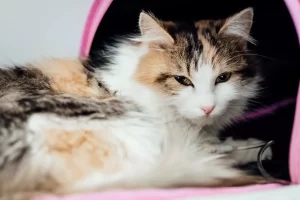
Ensuring a speedy recovery: The importance of rest and isolation for cats with colds
Cats with colds need plenty of rest and a quiet, comfortable place to recover. It is important to keep them isolated from other cats to prevent the spread of the cold and to avoid unnecessary stress.
Encourage your cat to rest in a warm and comfortable place, away from drafts and noise. Provide them with a cozy bed and soft blankets, and make sure they have easy access to food and water.
Additionally, avoid exposing them to any unnecessary stressors, such as loud noises, changes in temperature, or unfamiliar people or animals. This will help them recover more quickly and prevent complications.
It’s important to note that if your cat’s cold is severe or shows no signs of improvement after a few days, it’s important to seek veterinary care as soon as possible.
Preventing cat colds: Tips and strategies
The best way to prevent cat colds is to maintain good overall health and hygiene for your cat. Here are some tips for preventing cat colds:
- Keep your cat’s living area clean and free of dust and mold, which can irritate the respiratory system.
- Keep your cat up-to-date on vaccinations, as some strains of the cold virus can be prevented with vaccination.
- Avoid exposing your cat to other cats that may be sick.
- Feed your cat a well-balanced diet, provide them with clean water and maintain a healthy weight.
- Avoid exposing your cat to cold drafts or sudden changes in temperature.
- Keep your cat indoors during extreme weather conditions.
- Regularly groom your cat to remove dirt, dust, and debris from its coat.
- Regularly clean your cat’s food and water bowls, bedding, and litter boxes.
Note that while you can take steps to reduce your cat’s risk of getting a cold, it is not possible to completely eliminate the risk. However, by following these tips, you can help keep your cat healthy and minimize their risk of getting a cold.
proper diets for cats with cold
When a cat has a cold, it’s important to provide them with a diet that supports its recovery. Here are some tips for providing a proper diet for a cat with a cold:
- Offer wet food: Cats with colds may have difficulty eating dry food due to nasal congestion. Offer wet food, which is easier for them to smell and taste, and may also provide additional hydration.
- Provide high-quality protein: Provide a diet that is rich in high-quality protein, as this will help support their immune system and aid in recovery.
- Add supplements: Consider adding supplements such as fish oil, which can provide anti-inflammatory benefits and aid in respiratory health.
- Avoid food that can cause inflammation: Avoid foods that can cause inflammation, such as processed foods, high-carbohydrates, and food with added chemicals or preservatives.
- Provide easy access to food and water: Make sure your cat has easy access to food and water at all times, and encourage them to eat and drink as much as they need.
If your cat is not eating or drinking enough, it’s crucial to seek veterinary care as soon as possible. Not getting enough fluids can lead to dehydration and other complications.
Related read: Cat vomiting and not eating
The importance of vaccinations for preventing cat colds
Vaccinations are an important part of maintaining the overall health of your cat, and can also play a role in preventing cat colds. Here are some vaccines that can be helpful in preventing cat colds:
- Feline calicivirus (FCV) vaccine: FCV is a common cause of cat colds, and the vaccine can help protect against this strain.
- Feline herpesvirus (FHV) vaccine: FHV is another common cause of cat colds, and the vaccine can help protect against this strain as well (see also feline herpes home treatments).
- Feline panleukopenia (FPV) vaccine: FPV is a serious and potentially fatal disease caused by a virus that is related to parvovirus in dogs.
Remember that while vaccinations can help protect against certain strains of the cold virus, they are not 100% effective and cannot completely eliminate the risk of a cat contracting a cold. However, by keeping your cat up-to-date on vaccinations, you can help reduce its risk of getting a cold and minimize the severity of the symptoms if they do get sick. It’s always recommended to consult with your veterinarian about your cat’s specific needs and to follow the recommended vaccination schedule for your cat.
What if a cat cold is left untreated?
If a cat cold is left untreated, it can lead to more serious health complications. Here are a few potential outcomes of an untreated cat cold:
- Bacterial infections: A cat’s nasal passages and sinuses can become infected with bacteria, leading to more severe symptoms such as fever, discharge from the eyes and nose, and difficulty breathing. Check out our article on sinus infection and treatment methods.
- Pneumonia: If the cold progresses and is left untreated, it can lead to pneumonia, a serious infection of the lungs. Pneumonia can cause difficulty breathing, coughing, and a high fever.
- Dehydration: Cats with colds may have difficulty eating and drinking due to nasal congestion, which can lead to dehydration if left untreated.
- Weakened Immune System: A cold left untreated can further weaken the cat’s immune system, making it more susceptible to other illnesses and infections.
Seek veterinary care if your cat is showing signs of a cold or if their symptoms persist or worsen. Your veterinarian can perform a physical examination and diagnostic tests to determine the cause of your cat’s symptoms and provide appropriate treatment to help them recover. Early treatment can help prevent complications and promote a faster recovery.
Read More: How often do you take a cat to the vet?

